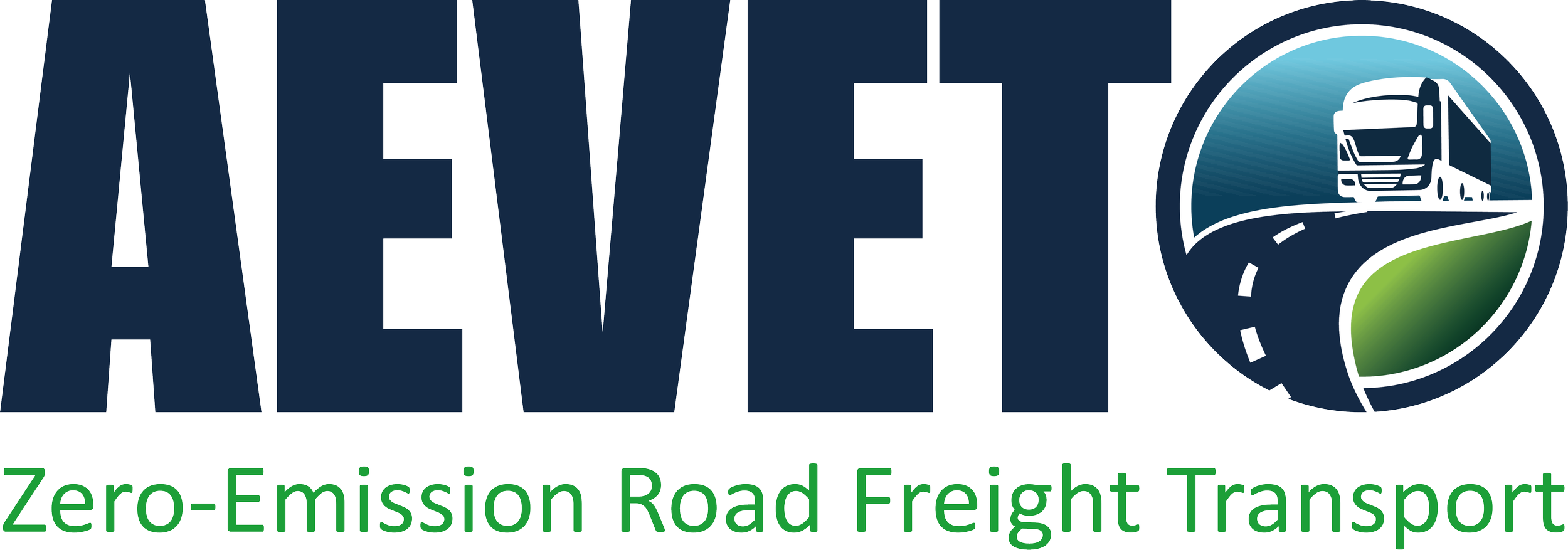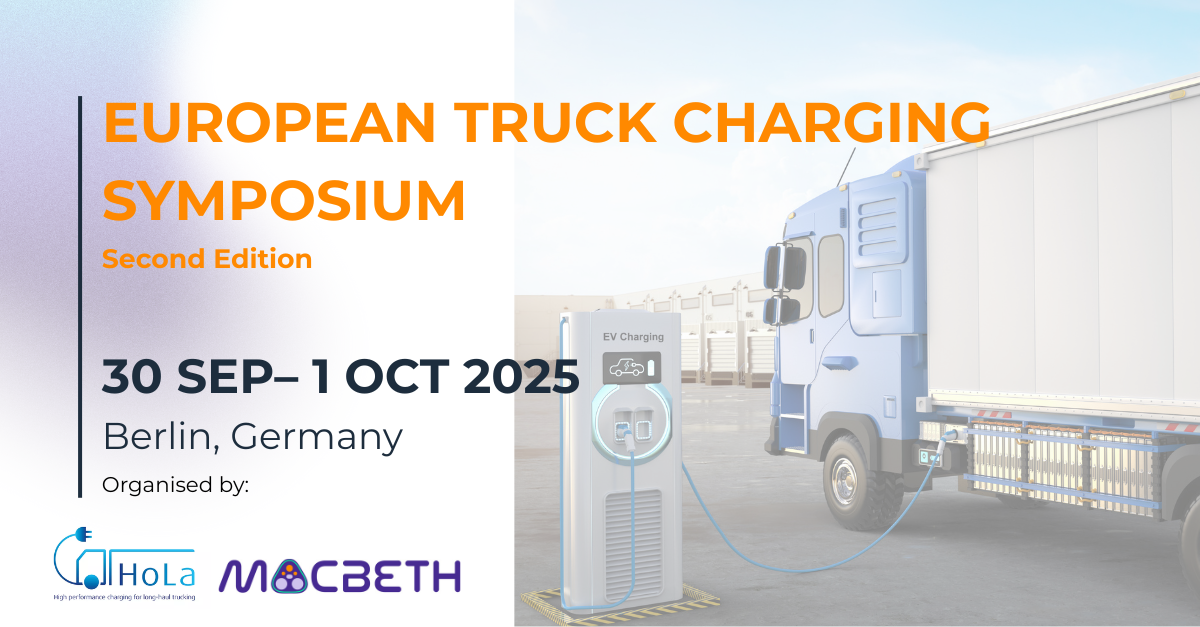News
FLEXMCS, A Year in Review
As FLEXMCS wraps up its first year, we highlight the consortium’s progress in 2025.
FLEXMCS Launch & Early activities
The project officially launched in January with a kick-off meeting at the VUB in Brussels.
Surveys have been conducted among the main MCS ecosystem stakeholders to understand their needs and challenges.
The requirements for the project tools and services as well as for the actual MCS hub have been defined by all partners.
The MCS IT architecture concept has been developed to enable these tools and services.
First tools, software and hardware development activities have been launched, looking ahead to the demo site implementation in Karlsruhe, Germany.
Stakeholder Engagement & Workshops
FLEXMCS hosted a workshop on high-power charging systems for heavy-duty vehicles which brought together actors from all sides of the field like CPOs, OEMs, and research institutions.
With ALICE, 2Zero, and the AEVETO cluster the “Charging ahead: Overcoming barriers for scalable Megawatt Charging Solutions in Europe” webinar brought European experts together to discuss decarbonizing heavy-duty road transport and overcoming the operational challenges of long-haul logistics.
FLEXMCS launched a stakeholder survey to collect inputs on the business needs and requirements related to the deployment of MCS.
Presence at Key Events
The 2nd European Truck Charging Symposium, Berlin
Transport & Logistics Fair, Munich
Call for Papers: Special Issue on Next-Generation Electric Vehicles
We are proud to share that our coordinator, Vrije Universiteit Brussel (VUB), is guest editing a new Special Issue in Energies on “Next-Generation Electric Vehicles: Advances in Powertrains and Charging Systems."
VUB welcomes original research, review papers, and case studies. For a list of key areas of interest, and further information, please visit MDPI.
Deadline for submissions: 15 January 2026
AEVETO Cluster interactive session at the MCS Symposium
On October 1st ALICE is organizing an interactive workshop session on charging scenarios at the 2nd European Truck Charging Symposium 2025.
Help shape real-world charging scenarios for Megawatt Charging Systems (MCS) across 3 charging locations: Private Depots, Semi-Public Stations and Public Stations, and charging strategies: Emergency/Opportunity Charging, Planned En-Route Charging, and Overnight Charging.
More information and registration here.
FLEXMCS at the 2nd European Truck Charging Symposium
FLEXMCS will be present and host a parallel session together with the AEVETO Cluster projects at the 2nd European Truck Charging Symposium (30 September - 1 October 2025, Berlin, Germany).
More information and registration here.
Meet us there and stay tuned!
Webinar report - Overcoming barriers for scalable Megawatt Charging Solutions in Europe
On 30 May 2025, ALICE, together with the AEVETO Cluster and the 2Zero Partnership, ALICE hosted a high-level webinar titled “Charging ahead: Overcoming barriers for scalable Megawatt Charging Solutions in Europe.” The session focused on the critical role of Megawatt Charging Systems (MCS) in decarbonising heavy-duty road transport and overcoming the operational challenges of long-haul logistics and the 2 main R&I projects working on the subject: FLEXMCS and MACBETH.
The transition to zero-emission freight transport is gaining momentum, but to fully decarbonise heavy-duty road transport, a reliable and scalable charging infrastructure is essential. This was the central theme of ALICE’s webinar on MCS, which brought together European experts to explore practical pathways toward implementation.
A key enabler of long-haul electrification
MCS technology promises to charge up to 80% of a battery electric truck within 30 minutes - but is it perceived as a game changer by the logistics industry?
The webinar started with the following question: “In your opinion, how important are Megawatt Charging Systems (MCS) or high-power charging for the successful electrification of road transport?”
Most of the audience (48%) answered that yes, MCS play a significant role, but other factors (e.g. battery tech, policy, grid integration) are equally or more influential. Moreover, the second choice (30%) was that MCS are critical to enabling flexible, scalable, and efficient charging infrastructure.
These answers reflect that uncertainty around high-power and Megawatt chargers, as the lack of reliable, fast charging infrastructure is seen as one of the major barriers hindering full electrification of long-haul heavy-duty transport.
Insights from European policy and funding for infrastructure and R&I
Rein Jüriado (European Commission) outlined policy frameworks supporting HDV charging infrastructure, including the Alternative Fuels Infrastructure Regulation (AFIR), the Alternative Fuels Infrastructure Facility (AFIF), and the Clean Transport Corridor Initiative. He emphasised the importance of coordinated deployment and funding allocation to unlock the full potential of MCS.
Lucie Beaumel (EGVIAfor2Zero) provided an overview of the 2Zero Partnership’s ongoing research and innovation activities. The partnership backs a portfolio of projects aimed at advancing battery electric vehicle (BEV) technologies and integrating them into the logistics sector.
Project spotlights: FLEXMCS and MACBETH
Omar Hegazy (Vrije Universiteit Brussel) presented the FLEXMCS project, which is collecting stakeholder insights to shape pilot activities and assess user expectations for MCS deployment. This includes technical testing, digital tool development, and policy recommendations.
Yancho Todorov (VTT Technical Research Centre of Finland) introduced MACBETH, which focuses on booking and queuing systems to enhance charger availability. The project seeks to mitigate the risks truck operators face in transitioning to battery electric trucks (BETs) by ensuring infrastructure reliability and operational predictability.
Stakeholder dialogue and interactive exchange
Alice Scotti (ALICE) facilitated a dynamic discussion on pain points and stakeholder needs for the exploitation of MCS. Key topics included:
· Reliability of booking systems and real-time charger availability
· Ensuring interoperability and compatibility across MCS infrastructure
· Financial risks and operational concerns for fleet operators
· The need for clear standards, permitting processes, and coordinated rollout
Participants also shared national experiences (e.g. the MegaCharge project in Norway) and expressed interest in deeper collaboration through future workshops. ALICE and its partners will follow up with surveys, bilateral interviews, and co-creation sessions to refine recommendations and accelerate deployment.
Looking ahead – participate in next steps
In his closing remarks, Fernando Liesa (ALICE) reiterated the urgency of building a robust ecosystem around road transport electrification and strongly recommended stakeholders to gain knowledge and competence on how to run road transport operations with electric vehicles. More and more, electric trucks will be gaining competitiveness to diesel and those ones mastering operations with electric trucks will have an important competitive advantage. Fernando encouraged participants to complete the FLEXMCS survey and engage in follow-up activities. The insights gathered will directly feed into policy dialogues and upcoming pilot implementations.
Webinar key takeaways - Overcoming barriers for scalable Megawatt Charging Solutions in Europe
𝟯𝟬 May 𝟮𝟬𝟮𝟱, hosted by ALICE, AEVETO Cluster, and the 2Zero Partnership
Total Cost of Ownership (TCO) remains the most limiting factor. In previous and current stakeholder engagement efforts, TCO and operational model misalignment (e.g. range, downtime, payload) consistently emerged as top concerns for logistics operators. Without compensating factors like electricity price competitiveness and operational incentives, adoption is slow.
Grid readiness and permitting timelines are still major bottlenecks. High-power charging infrastructure requires substantial grid upgrades and faces delays due to fragmented permitting frameworks across regions and countries.
Public-private funding is ramping up through EU programmes like AFIF and AFIR. The European Commission is actively supporting infrastructure deployment through regulatory targets (AFIR), corridor initiatives, and financing schemes like AFIF (€1.3B already allocated, with new calls scheduled for 11 June 2025 and 4 March 2026). The Clean Transport Corridor Initiative was presented focusing mainly on supporting investment in new infrastructure where it is most needed.
The 2Zero Partnership is aligning innovation across projects. With 125 members and €615M in funding, 2Zero is fostering synergies across HDV, urban logistics and charging R&I. Projects like FLEXMCS and MACBETH are among 9 funded initiatives specifically targeting MCS deployment challenges.
FLEXMCS and MACBETH are developing and testing practical solutions. From user-centric booking platforms and route planning tools, to site layout optimization and location planning software, both projects are using pilot sites (e.g. Karlsruhe, Belgium) to validate technologies in real-world conditions.
Stakeholder engagement is central to both projects. Through surveys, interviews and co-creation workshops, ALICE and partners are gathering multi-stakeholder input on pain points such as booking reliability, interoperability, policy gaps and investment risk.
Building operational knowledge will drive competitive advantage. As electric trucks approach parity with diesel, those able to master their deployment and operations will be ahead. Participants were encouraged to complete the open survey to join the follow-up FLEXMCS workshop on 8 July 2025.
Stakeholder survey
Charging into the future: Stakeholder perspectives on the deployment of Megawatt Charging Systems (MCS) – FLEXMCS survey
FLEXMCS has launched a survey to collect input on the business needs and requirements related to the deployment of Megawatt Charging Systems (MCS) and on current needs, challenges, and operational experiences from a multi-stakeholder point of view.
If you represent below stakeholders please complete our survey!
Logistics Service Providers (LSPs) / Fleet Owner
Charging Point Operator (CPO)
Secure parking owner
Logistic site owner or operator (e.g. distribution center, warehouse, terminal)
Truck manufacturer & OEM
Distribution System Operator (DSO)
Transmission System Operator (TSO)
Charging infrastructure supplier
Policymaker and Government body
National/EU Industry Associations
FLEXMCS at TLF Munich
2–5 𝐉𝐮𝐧𝐞 2025, 𝐓𝐫𝐚𝐧𝐬𝐩𝐨𝐫𝐭 & 𝐋𝐨𝐠𝐢𝐬𝐭𝐢𝐜𝐬 𝐅𝐚𝐢𝐫 𝐢𝐧 Messe, 𝐌𝐮𝐧𝐢𝐜𝐡
FLEXMCS will be showcasing some of its innovations during the Transport & Logistics Fair in Munich from 2 to 5 June 2025 at the ALICE booth (Hall A, Stand 400). Visit the booth if you are curious about the project!
Webinar (30 May, 10.00-11.30): Charging ahead - 𝗢𝘃𝗲𝗿𝗰𝗼𝗺𝗶𝗻𝗴 𝗕𝗮𝗿𝗿𝗶𝗲𝗿𝘀 𝗳𝗼𝗿 𝗦𝗰𝗮𝗹𝗮𝗯𝗹𝗲 𝗠𝗲𝗴𝗮𝘄𝗮𝘁𝘁 𝗖𝗵𝗮𝗿𝗴𝗶𝗻𝗴 𝗦𝗼𝗹𝘂𝘁𝗶𝗼𝗻𝘀 𝗶𝗻 𝗘𝘂𝗿𝗼𝗽𝗲
𝟯𝟬 May 𝟮𝟬𝟮𝟱,𝟭𝟬:𝟬𝟬–𝟭𝟭:𝟯𝟬 𝗖𝗘𝗦𝗧, online
Hosted by ALICE in collaboration with the AEVETO Cluster and the 2Zero Partnership, this session will provide an in-depth exploration of the charging infrastructure, regulations, and real-world insights driving the advancement of ultra-fast charging for long-haul trucks.
Join us for a comprehensive overview of key European initiatives supporting the testing and deployment of MCS technology and innovative tools in real-world long-haul logistics. The session features a presentation on the FLEXMCS project by Prof. Dr. Omar Hegazy, followed by an interactive discussion with leading industry experts.
Stakeholder Collaboration in Action
Stakeholder Collaboration in Action: Shaping the Future of Megawatt Charging Systems (MCS)
FLEXMCS brought together a diverse group of partners for an engaging workshop on high-power charging systems for heavy-duty vehicles (HDVs) on 13 February 2025.
This interactive session included charge point operators (CPOs), distribution system operators (DSOs), logistics providers, OEMs, hardware manufacturers, technology developers, and research institutions, all working together to define the future of megawatt charging infrastructure.
Key Insights from the Workshop
Optimizing Charging Hub Layouts – Partners shared ideas on how charging stations can best serve different operational needs, ensuring flexibility and efficiency.
Factors Influencing Charging Point Selection – Beyond energy costs, stakeholders explored how factors like charging speed, location, and accessibility impact decision-making.
Balancing HDV & Light Vehicle Charging – Strategies were discussed to prioritize charging allocations, maximizing utilization and economic sustainability.
Are you a stakeholder in the MCS ecosystem?
We invite you to join our Stakeholders Group and help shape the tools, models, and strategies that will drive sustainable transportation.
Get in touch with Project: info@flexmcs.eu
Sign up
FLEXMCS Officially Launched!
On 14 and 15 January 2025, the Kick-off Meeting of FLEXMCS took place at Vrije Universiteit Brussel (VUB). Highlights from the Kick-off Meeting
Partner Introductions – Each partner presented their expertise and role, fostering a collaborative foundation for the project.
Workshops – Interactive sessions aligned objectives across work packages, ensuring synergies and a shared vision.
Lab Tour – Participants explored the VUB lab facilities.











